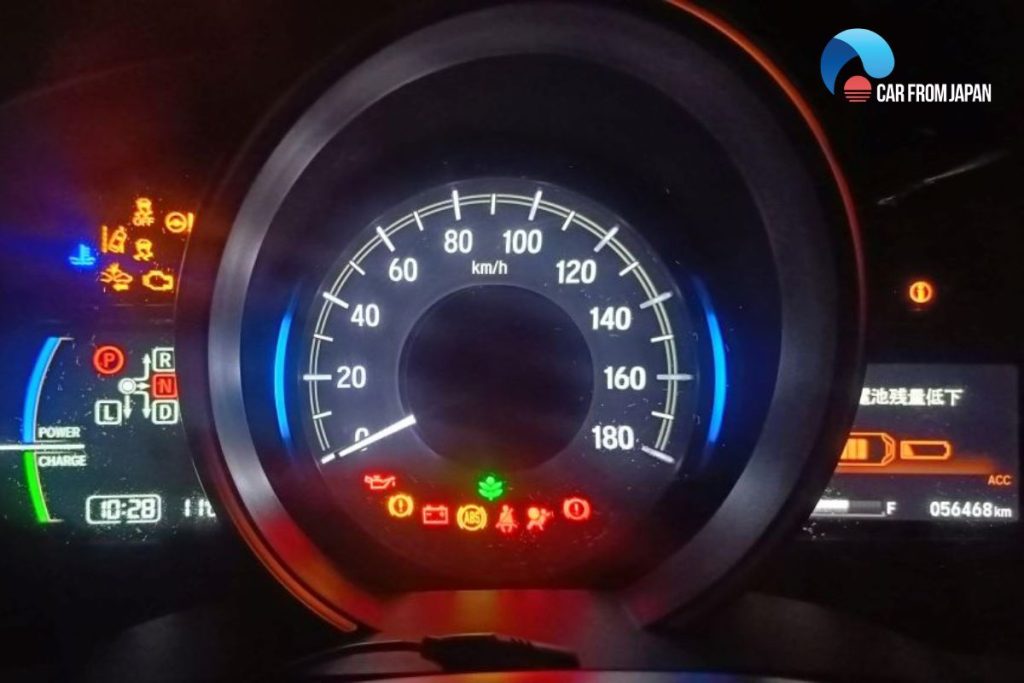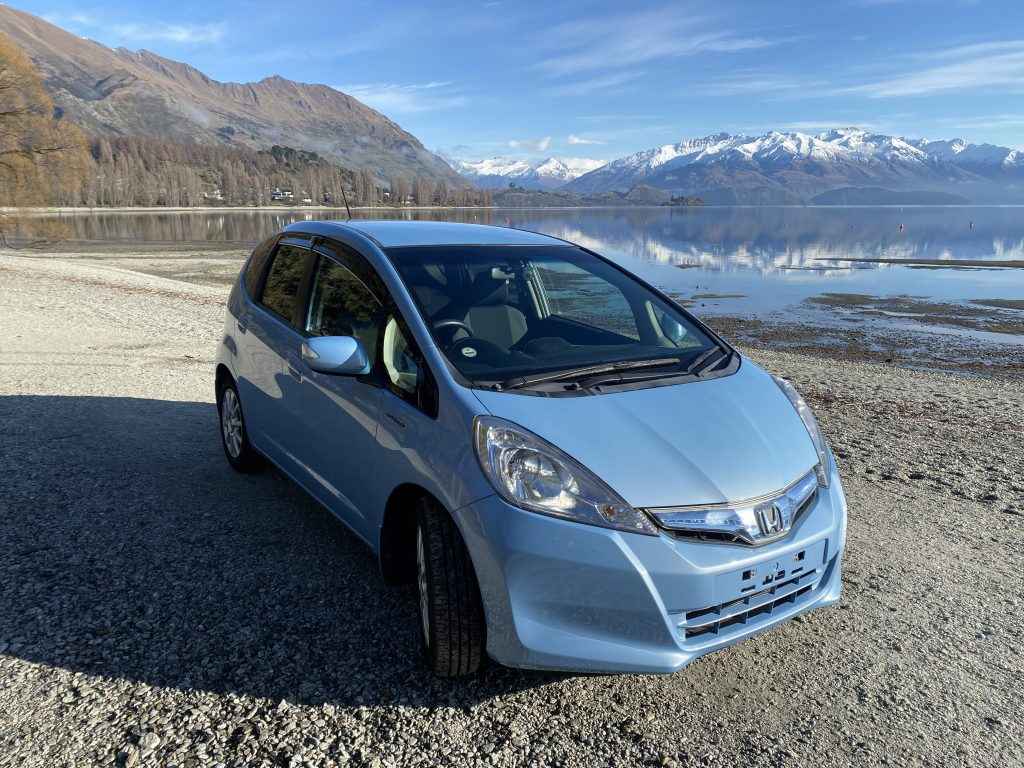The Honda cars known for its efficiency and reliability. But there are still some Honda Fit Hybrid problems that owners and potential buyers should be aware of.
Understanding these problems can help in diagnosing, preventing, and repairing them effectively!
Contents
- Most Common Honda Fit Hybrid Problems
- How To Address Honda Fit Hybrid Problems?
- What To Do Before Purchasing A Honda Hybrid
- FAQs on Honda Fit Hybrid Problems
- Can aftermarket modifications affect the Honda Fit Hybrid’s battery life?
- Does the climate I live in influence the occurrence of common problems in the Honda Fit Hybrid?
- How does frequent short-distance driving impact the Honda Fit Hybrid?
- Are there specific diagnostic tools required for identifying issues with the Honda Fit Hybrid?
- Is it common for the Honda Fit Hybrid to experience software-related issues?
- How does the regenerative braking system affect brake wear in the Honda Fit Hybrid?
Most Common Honda Fit Hybrid Problems
Battery Problems
The heart of the Honda Fit Hybrid’s efficiency is its battery, but over time, issues may arise, particularly in older or high-mileage vehicles.
Symptoms of battery degradation include a noticeable drop in fuel economy and difficulties in starting the vehicle. Factors such as frequent short trips, extreme temperatures, and age can accelerate battery wear.
While battery replacement is an expensive endeavor, refurbishing existing batteries presents a cost-effective alternative for the Honda Fit hybrid battery problems.
Refurbishment involves replacing only the malfunctioning cells instead of the entire battery unit, significantly reducing repair costs.
Transmission Issues
The CVT in the Honda Fit Hybrid is designed for optimal fuel efficiency and smooth driving. However, some drivers report rough transitions between gears, hesitancy in acceleration, and in severe cases, complete transmission failure.
These problems can sometimes be mitigated with regular transmission fluid changes and software updates aimed at improving transmission behavior.
Electrical Problems
Electrical glitches can manifest in various ways, including erratic behavior of dashboard lights, issues with the auto start-stop functionality, or failures in the electric power steering system.
While some of these issues are rectifiable with software updates provided by Honda dealerships, others may require the replacement of faulty electrical components.

Water Leaks
Reports of water leaks, leading to damp interiors and musty odors, point to potential issues with door seals or hatchback sealing. Water ingress can not only cause discomfort but also damage interior components if left unchecked.
Inspection of seals and ensuring proper drainage can help prevent water leaks. In some cases, replacing worn or damaged seals is necessary to maintain a dry and comfortable cabin environment.
AC/Heater Malfunction
Issues with the HVAC system, such as inadequate cooling or heating, can detract from the driving experience as one of the most-noted Honda Fit Hybrid problems.
These problems may stem from low refrigerant levels, a failing AC compressor, or a malfunctioning blend door actuator responsible for directing airflow within the system.
HVAC issues require prompt attention to prevent further system damage and ensure a comfortable cabin climate regardless of external conditions. Routine checks can identify potential issues early, allowing for timely repairs or part replacements.
Infotainment System Glitches
Some owners have reported issues with the infotainment system, including unresponsive touchscreens, Bluetooth connectivity problems, and intermittent function of audio and navigation systems.
These glitches can often be resolved with software updates or, in some cases, may require hardware replacement.
Steering Noise
There have been instances where drivers notice a clicking or knocking noise coming from the steering column, particularly when turning at low speeds or maneuvering in tight spaces.
This issue may be related to the steering column assembly or the power steering system and might require inspection and repair by a professional.

Brake Wear and Noise
Despite regenerative braking systems that typically result in less wear on brake components in hybrids, some Honda Fit Hybrid models may experience premature brake wear or unusual noises during braking.
This could be due to the brake pads, rotors, or other components of the brake system requiring adjustment or replacement.
High Voltage Battery Cooling System
Maintaining optimal operating temperatures will help you avoid any Honda Fit hybrid battery problems. Issues with the cooling system, such as clogged filters or malfunctioning fans, can lead to overheating and potentially reduce the battery’s lifespan.
Software and Sensor Malfunctions
The complex hybrid system relies heavily on software and a range of sensors to operate efficiently.
This Honda Fit Hybrid problems in these areas can lead to various driveability issues, including erratic power delivery and incorrect battery charging behavior.
Diagnosing these problems typically requires specialized equipment and knowledge.
Suspension Noises
Some owners have reported creaks and rattles from the suspension, especially in older models or those that have been driven on rough roads.
Wear and tear on suspension components like bushings, struts, and mounts can cause these noises, indicating a need for inspection and potential replacement.

How To Address Honda Fit Hybrid Problems?
Proactive prevention and maintenance are the keys to keeping up with common problems with Honda hybrids, especially the Honda Fit, with issues like brake problems or battery degradation being obvious.
Regular maintenance, monitoring, and recognizing recalls to address minor concerns before they become more serious can significantly increase the longevity and safety of your hybrid on your daily drive.
Since the massive recalls in 2000 with the Honda Civic, Honda has devoted more time and effort to caring for its hybrid models.
With transmission issues, every car owner needs to know about the transmission maintenance process by technicians.
More than that, we also need to closely monitor battery performance to detect problems to avoid leaving them for too long, causing damage to the entire engine later and saving significant costs.
Honda hybrid recalls across the board
Honda has issued several hybrid recalls over the years to address a variety of issues.
These include transmission software issues that can lead to damage to vehicle components and issues with hybrid fail-safes. A notable example is a transmission software issue that affected more than 140,000 Civics.
Checking recall information
Honda hybrid owners need to stay up to date on recalls. Owners should regularly check to see if their vehicle is affected by any open recalls.
You can check information on Honda’s website or the National Highway Traffic Safety Administration (NHTSA) database. Moreover, the recall-related repairs are usually covered by Honda dealers.
The importance of addressing recalls
By addressing recalls promptly, owners can ensure the safety and reliability of their vehicles. It is in the best interest of every Honda hybrid owner to stay informed about recalls.
Find a hybrid expert
Hybrids have complex systems that require specialized knowledge to service and repair. When it comes to repairing or servicing your Honda Hybrid, choose a mechanic who is knowledgeable about hybrid technology.
These technicians have the expertise and tools necessary to address issues specific to hybrids, such as high-voltage battery systems and regenerative braking.
Honda dealerships vs. independent shops
While Honda dealerships are generally the most trusted place to get hybrid vehicle repairs, note that their services can be more expensive than those of independent shops. Certified independent shops may also offer expert services for hybrid vehicles.
Owners will need to weigh the benefits of expert service against the potential savings when choosing between a Honda dealership and a certified independent shop to hand over their cars.

What To Do Before Purchasing A Honda Hybrid
If you’re considering buying a Honda Fit Hybrid or Civic Hybrid, be sure to consider both the potential benefits and potential challenges that come with owning a conventional car.
While it’s difficult enough to maintain a conventional car, hybrids are a bit more complicated.
Overall, Hybrids are praised for their fuel economy and reduced emissions, but they also have specific maintenance requirements, such as the preventative measures we’ve outlined.
Potential buyers should consider the long-term costs associated with these aspects, including the possibility of costly battery replacements or internal damage with equally expensive accessories.
On the other hand, Honda hybrids are generally known for their reliability and can be an ideal choice for those looking to minimize their environmental impact.
To minimize the risks of hybrid ownership, you should be clear about your needs, understand the vehicle’s history, and consider investing in a Honda-specific warranty or extended service plan if available.
Honda battery warranty
Depending on your driving and daily use conditions, Honda actually offers a pretty good warranty for the life of your vehicle, including the hybrid battery, which typically lasts for 3 years or 36,000 miles (whichever comes first).
Offering peace of mind to Honda Fit hybrid owners, the warranty covers common issues that may arise during the year of ownership.
However, it is crucial to read the terms carefully and understand what is and is not covered under the Honda limited new vehicle warranty.
If you own an older Hybrid with more than 100,000 miles on it, you may want to take the time to learn more about aftermarket replacement batteries.
Honda can typically provide replacement batteries for quite a long time, but for older models, if they are a decade old or older, your options may be limited. For Honda replacement batteries, there is a 100-month warranty after installation.

A different Hybrid driving experience
Hybrid driving experiences can be very different from traditional gasoline cars. Owners can easily see the difference in the way the car accelerates and brakes using the regenerative braking system, and the electric motor also contributes to a smoother and quieter ride without much engine noise.
Regenerative systems on hybrid cars will not only recharge the battery but also require a slight adjustment in driving style to maximize the car’s efficiency. In newer hybrids and especially electric cars, one-pedal driving is almost standard.
So before coming and driving a Hybrid car, learn to understand and get used to driving it otherwise, you may have difficulty on complex routes.
FAQs on Honda Fit Hybrid Problems
Can aftermarket modifications affect the Honda Fit Hybrid’s battery life?
Aftermarket modifications, especially those related to the electrical system or adding significant weight to the vehicle, can impact the hybrid battery’s efficiency and lifespan.
Modifications that increase power consumption or alter the vehicle’s aerodynamics can lead to increased strain on the battery, potentially reducing its operational life.
Does the climate I live in influence the occurrence of common problems in the Honda Fit Hybrid?
Climate can indeed play a role in the prevalence of certain issues.
For instance, hybrid batteries and electrical components may be more susceptible to problems in extremely cold or hot climates due to the additional stress these conditions place on battery charging and thermal management systems.
Similarly, areas with high humidity can exacerbate electrical issues and water leaks.
How does frequent short-distance driving impact the Honda Fit Hybrid?
Short-distance driving, particularly in stop-and-go traffic, can lead to more frequent cycling of the hybrid battery, which may accelerate wear.
Additionally, the engine may not reach optimal operating temperatures during short trips, potentially affecting oil quality and leading to increased engine wear over time.
Are there specific diagnostic tools required for identifying issues with the Honda Fit Hybrid?
While generic OBD-II scanners can identify a range of issues, specialized diagnostic tools designed for Honda or specifically for hybrid vehicles may be required to diagnose certain problems accurately.
These specialized tools can provide deeper insights into the hybrid system’s performance and pinpoint issues more effectively.
Software plays a crucial role in managing the hybrid system’s operation. Over time, updates may be required to improve system performance or address bugs.
While not extremely common, software glitches can occur. Keeping the vehicle’s software up to date is essential for optimal performance.
How does the regenerative braking system affect brake wear in the Honda Fit Hybrid?
The regenerative braking system, which captures kinetic energy during braking and converts it to electrical energy to recharge the battery, can lead to less wear on traditional brake components like pads and rotors.
However, unexpected wear or noise may still occur and should be inspected to ensure the braking system functions correctly.
Check out this video from CarHub for more information on how to keep a Hybrid battery last a lifetime!
In the end, addressing Honda Fit Hybrid problems can provide Fit Hybrid owners with a more comprehensive understanding of their vehicle’s specific needs and potential issues, leading to more informed maintenance and driving practices.



